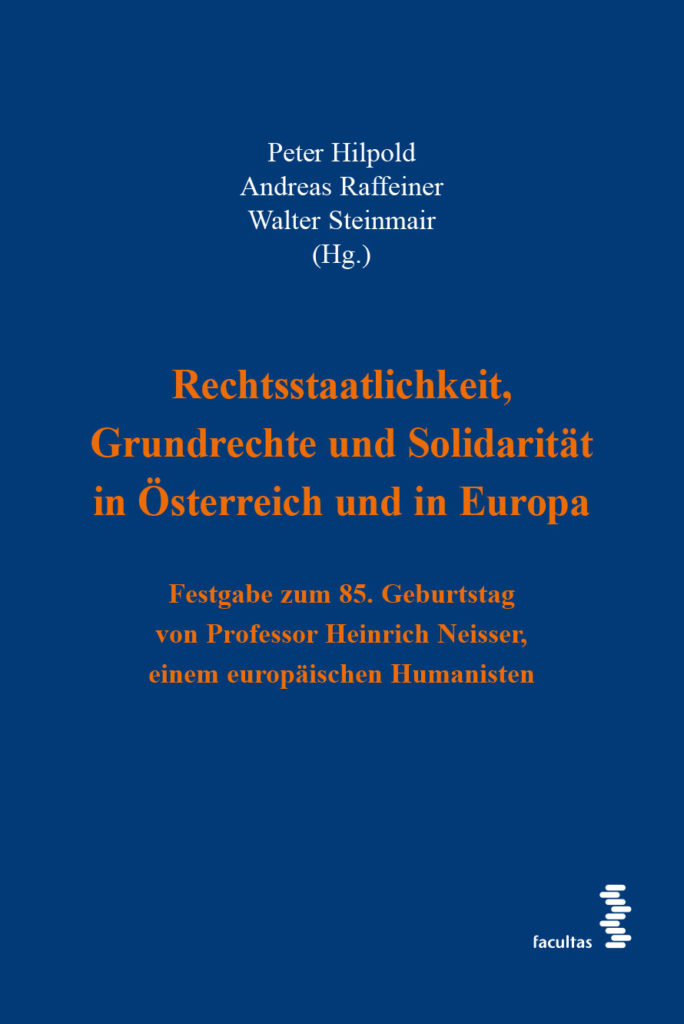Normal Times
Ah! Finally summer. Finally vacations. Finally relaxing. Finally Costa Brava, football stadium, dinners with friends, hugs, love – normality! At last! Ah, finally reclining with a heavy Armin Laschet sigh of physical comfort in our deckchair. Off with the mask, on with the suntan lotion. Normality at last. Now just leave us alone. Ah!
One man’s normality is another man’s alarm. The FDP is extremely alarmed at how many Germans now find the pandemic state of exception quite normal. The infection rate safely in the single digits for the moment, the Bundestag has nevertheless prolonged the state of “national epidemic situation” (§ 5 InfSG), and everyone seems to be just fine with that! On the other hand – returning to normality while the Delta variant is on the rise? In Delta-ridden Spain, the government is wooing tourists as if everything were normal, much to the alarm of still rather normal France.
One man’s alarm is another man’s normality. Things are bad in Afghanistan, the Taliban are winning, our soldiers come home, while their local helpers and translators and their families face annihilation if they are left behind. A few hundred are allowed to come along, provided they have the money and the papers for the journey and survive the trip to the airport. Good luck to them, while much of Europe’s principal concern seems to be pushing back and deporting Afghans, Syrians, whoever, in as large numbers as possible. No extremists, no firebrands. Sensible middle-of-the-road governments. Social Democrats in Denmark, Conservatives in Greece. All quite normal.
++++++++++Advertisement++++++++

An der neuen Juniorprofessur für Öffentliches Recht, insb. Verwaltungsrecht, mit Schwerpunkt Recht der Digitalisierung, Medienrecht und Recht des E-Governments (Prof. Dr. Alexander Tischbirek) sind zum 01.10.2021
zwei Stellen als Wissenschaftliche:r Mitarbeiter:in (m/w/d)
in 50% Teilzeit (TV-L E 13) befristet auf 2 Jahre zu besetzen. Es wird Gelegenheit zur Promotion gegeben. Wir freuen uns auf Ihre Bewerbung bis 23.07.2021 an juniorprofessur.tischbirek@ur.de. Nähere Informationen finden Sie hier.
++++++++++++++++++++++
The right to be left alone. The right not to be abandoned. Between these two poles lies the legal field of tension that keeps the particles of politics dancing. That is normal, too.
Nobody wants to be left alone more than Britain. There, anyone who facilitates the entry of asylum seekers into the UK may face imprisonment up to life in future, according to Home Secretary Priti Patel’s new “Nationality and Borders Bill” (Sec. 38). Helping asylum seekers cross the border has been a crime already, unless you are an employee of a special asylum aid organisation, but only if it’s done “for gain”. Patel wants this element of the offence removed. How afraid, how alarmed must one be to believe that one has to defend one’s normality with the harshest punishment this side of the death penalty against people who altruistically help refugees finding a refuge?
The British government, like the Danish, intends to fix their asylum problem the Australian way: Those who come and seek protection are to be incarcerated in an extraterritorial, far-away camp and prevented from entering their proper territory with all the repressive and preventive means of the security state. Anyone who wants to know how well this works in Australia will find more than enough material here. The supposed Australian solution does not solve any problem, but creates plenty new ones instead and makes old ones invisible at best, and at an extremely high price. It normalizes things no-one would want to normalise in one’s very own interest.
Alarm bells are finally ringing from a place one would not have suspected this from lately: Strasbourg. Two important judgements were handed down today at the European Court of Human Rights. One concerns Hungary and its pushback policy, more on that further below. The other is about Denmark.
++++++++++Advertisement++++++++
 Stellenausschreibung – Wissenschaftliche*r Mitarbeiter*in (m/w/d)
Stellenausschreibung – Wissenschaftliche*r Mitarbeiter*in (m/w/d)
Am Forschungsinstitut für öffentliche und private Sicherheit Berlin (FÖPS) ist ab sofort eine Stelle – vorzugsweise für Juristinnen und Juristen – zu besetzen. Der/die Stelleninhaber*in soll die Mitglieder des FÖPS bei der Entwicklung von Forschungsprojekten und der Einwerbung von Drittmitteln unterstützen.
Die E13-Stelle ist auf drei Jahre befristet und hat einen Umfang von 66 % der wöchentlichen Arbeitszeit. Bei Interesse und fachlicher Eignung ist ein späterer Wechsel in eines der eingeworbenen Projekte möglich. Die Bewerbungsfrist läuft am 23. Juli 2021 ab. Weitere Informationen zur Ausschreibung finden Sie hier.
++++++++++++++++++++++
In the case of M.A. v. Denmark, a Syrian who has enjoyed temporary protection in Denmark since 2015, had filed a lawsuit for family reunification to let his wife of 25 years join him. The Danish authorities rejected the application: Refugees with subsidiary protection status must wait three years before any family reunification can occur.
Article 8 of the European Convention on Human Rights guarantees a right to respect of family life. According to the Court, this does not mean that member states must necessarily allow family reunification in every case. They have a wide margin of appreciation in deciding whether and how to do so. What they must provide, however, is a fair balancing of the plaintiff’s interest in cohabitation with his wife and their own interest in controlling immigration. After all, what does the state want to control immigration for? Economic reasons, but also reasons of social cohesion and integration. For the latter, however, family reunification can also be a positive factor. The state must try to bring these different concerns together instead of simply imposing a blanket three-year time limit whose duration has nothing to do with the necessities of the individual case.
Individual case means: recognising bearers of fundamental rights as such. Denmark, in its urge to be left alone, seems to be no longer prepared to do this. Separation from their loved ones for three years before they can see their family again – that might be an incentive to move on to somewhere else to seek protection. With this, Denmark is only the vanguard. But now the ECtHR stands up and says: Enough of this. Mind the person front of you as a person who has rights.
But that’s not all the exciting judicial news at the end of this July week: Today, the Federal Constitutional Court of Germany also issued a remarkable chamber decision in the context of asylum law. A judge at the Administrative Court of Gießen had opined in a ruling in 2019 that a campaign poster of the right-wing extremist NPD party saying “Migration kills” did not have to be taken down because, in his view, the NPD claim was factually correct. An Afghan asylum seeker later found himself in front of this same judge and rejected him as prejudiced – unsuccessfully: According to the Administrative Court of Gießen, the judge merely had a different legal opinion, and it was not even inciting hatred (Volksverhetzung), so there was no question of prejudice. The First Chamber of the Second Senate shows little patience with this way of dealing with the right to the lawful judge under Article 101 of the Basic Law and finds the decision in arbitrary and obvious violation of that norm: neither the judge’s legal opinion nor its hatred-inciting character were the issue here, but that the judge, in agreement with the NPD, finds that migrants as such were somehow potential murderers. This indeed and obviously did give rise to the fear that the judge will not hear your asylum application without prejudice.
So, pleasant decisions on unpleasant events. No leaving us alone any time soon, it seems, nor should we be, I suppose, given the state of the world around us. But can’t we be still allowed a little break from the constant alarm? A bit of estival deck-chair sitting, perhaps? And then come back in September invigorated, freshly alarmed and full of thirst for action? I hope I can, at least, so I take my leave from this editorial for a summer break of some weeks, during which Verfassungsblog itself will of course continue to be open for business as usual, albeit at a somewhat seasonally reduced pace, probably.
++++++++++Advertisement++++++++

Call for Papers: Playing Constitutional Twister: The Mechanisms of Convergence and Divergence within Multilevel Legal Orders
University of Ljubljana, 1-2 October 2021 (in person and online)
How can we both maintain unity and accommodate diversity within multilevel legal orders? Four leading European law departments are co-organising a conference devoted to these questions. Scholars from Europe and beyond are invited to submit their abstracts. The call for papers is available here. Submit your abstract to multilevel.conference@gmail.com by July 15, 2021.
++++++++++++++++++++++
But first, of course, the week that was, and before that, a few announcements:
1) We are hiring: We are looking for a successor for our esteemed editor Luise Quaritsch, who is moving on to a new Brussels job as of 1 August, much to her credit and our regret. A passion for German and European constitutional law, a decent Erstes Staatsexamen and excellent skills in editing German and English texts are the job requirements. We offer a job in Berlin (50%) in a team that is extremely great fun to work with every day (I know this from my own experience, not just the usual job advertisement gobbledygook), the most fascinating topics to work on that exist (we think), contact to all sorts of constitutional law luminaries on a daily basis, and pay at E13 level. Ideal alongside a PhD project or to bridge the waiting period for the Referendariat. Interested? Don’t hesitate to apply!
2) As of 1 September, we have gained a fantastic addition to our team in the person of MAXIM BÖNNEMANN. Maxim comes from Philipp Dann’s team at Humboldt University, has already been part of the editorial team for the last few months as a Rechtsreferendar, and will in future be principally in charge of our online symposia. Sinthiou Buszewski, who has been doing this on top of her day job at the Federal Ministry of Finance during lunch breaks and after work, has understandably made it clear that this can’t go on any longer, which we regret a lot, of course, but luckily she will remain a member of our editorial board and close to our hearts in general.
3) Rechtsreferendare: We have vacancies from October for the Wahlstation and are looking forward to your applications!
The week on Verfassungsblog
Hungary is the EU member state most notoriously disregarding its obligations towards asylum seekers and for the longest time and most blatantly pursuing the policy of making asylum seekers’ lives as miserable as possible so that they won’t come seeking asylum in Hungary in the first place and turn elsewhere instead. Hungarian pushback practices are the subject of the aforementioned ruling of the European Court of Human Rights in the case of Shahzad v. Hungary, which finds a violation of the prohibition of collective expulsion and, according to DANA SCHMALZ’s analysis, clears up some misunderstandings but also revisits its line of reasoning from the controversial decision N.D. and N.T. v. Spain.
What the so-called Libyan “coast guard”, financed if not abetted by the EU, is capable of, has been known for some time. Last month, however, they were filmed shooting at and trying to ram a boat full of refugees. Now the Italian authorities are investigating, and ITAMAR MANN and JULIA MOURÃO PERMOSER observe an interesting reversal of dynamics: the search-and-rescue NGOs, recently criminalised themselves, are now turning the tables and bringing state actors to justice. However, the turn to criminal law also has its pitfalls: the impression is created that the problem is the individual misconduct of certain Libyans, whereas the long-standing Italian policy of externalisation is lost from view.
++++++++++Advertisement++++++++

Rule of Law, Fundamental Rights and Solidarity in Austria and in Europe – Liber Amicorum Professor Heinrich Neisser
Edited by Peter Hilpold, Andreas Raffeiner and Walter Steinmair
On nearly 2000 pages over 100 renowned experts are presenting studies on the rule of law, on the protection of fundamental right and on solidarity in the European Union and its Member States with a special focus on Austria.
This book comes at a time when fundamental values in the EU are in peril and it presents a series of approaches on how this crisis could be overcome. Also economic issues, and in particular the recent EU Recovery Plan, are treated.
++++++++++++++++++++++
In the European Union, there are signs that the Commission seeks to make more determined use of its legal arsenal vis-à-vis Poland and Hungary. TÍMEA DRINÓCZI considers the optimism that the EU can still achieve anything at all in this way against the rule of law and democracy backsliding in these countries to be unfounded and suggests to focus instead on supporting the resilient factors within the Polish and Hungarian society.
Our readers are well aware that judicial independence is under threat in many places. But prosecutors are also coming under increasing pressure. The Inter-American Court of Human Rights has also dealt with this problem in two cases. MARIE-CHRISTINE FUCHS finds the decisions remarkable also because the court has taken the dialogue with the European Court of Human Rights to a new level.
The EU Commission’s announcement that it would take Germany to the ECJ over the Federal Constitutional Court’s PSPP ruling has prompted 29 German constitutional law professors to write an open letter of protest. One of them is CHRISTIAN JOERGES who, in a joint post with MICHELLE EVERSON, fears that the planned infringement proceedings overburden the law.
In Northern Ireland, the High Court has handed down a judgment on the Northern Ireland Protocol, over which the EU and the British government are increasingly at loggerheads. DAGMAR SCHIEK sees a worrying tendency at work in the judgement to elevate unionist positions to the level of constitutional law, which could upset the delicate balance in the ex-civil war zone of Northern Ireland.
The EU climate law, passed by Parliament and Council at the end of June, is examined by SEBASTIAN BECHTEL.
In France, the Conseil d’Etat also passed a verdict saying France was doing too little to avert climate change. NATHAN DE ARRIBA-SELLIER fears, however, that the decision could turn out to be a Pyrrhic victory.
The world’s oceans could be fished empty as early as 2048. Government subsidies also contribute to the overfishing of the oceans. This has long been an issue in the World Trade Organisation, as the existing rules do not sufficiently cover such subsidies. But now there is a draft on the table to limit subsidies that members could agree on next week. ROMY KLIMKE has taken a closer look at the draft and identifies some weaknesses.
The Corona pandemic seems to be contained in Germany for the moment, but elsewhere the numbers are skyrocketing again. PATRICK ZIMMERMANN considers the quarantine of returnees from so-called virus variant areas, who have been fully vaccinated, to be questionable from a fundamental rights point of view.
In Saarland, a media law provides that the director of the state media authority is elected and dismissed by the state parliament. The Greens, the FDP and the Left Party are now asking the Federal Constitutional Court to review the constitutionality of this regulation. KARL-E. HAIN is of the opinion that it is not compatible with the principle of state neutrality.
Among the laws that the German CDU/CSU/SPD Coalition formerly known as Grand hastily passed on its last legs before the dissolution of the Bundestag was the authorisation of the intelligence services for source tapping and online searches. RALF POSCHER and KATRIN KAPPLER consider the law to be constitutionally flawed in several respects.
 So much for this week. We’ll see you again after the summer break, do stay in touch, and if you haven’t already, now of course is the ideal time to join our Steady membership and receive our fabulous Hold-on-to-the-Constitution coffee mug as a token of our gratitude and affection.
So much for this week. We’ll see you again after the summer break, do stay in touch, and if you haven’t already, now of course is the ideal time to join our Steady membership and receive our fabulous Hold-on-to-the-Constitution coffee mug as a token of our gratitude and affection.
All best
Max Steinbeis



